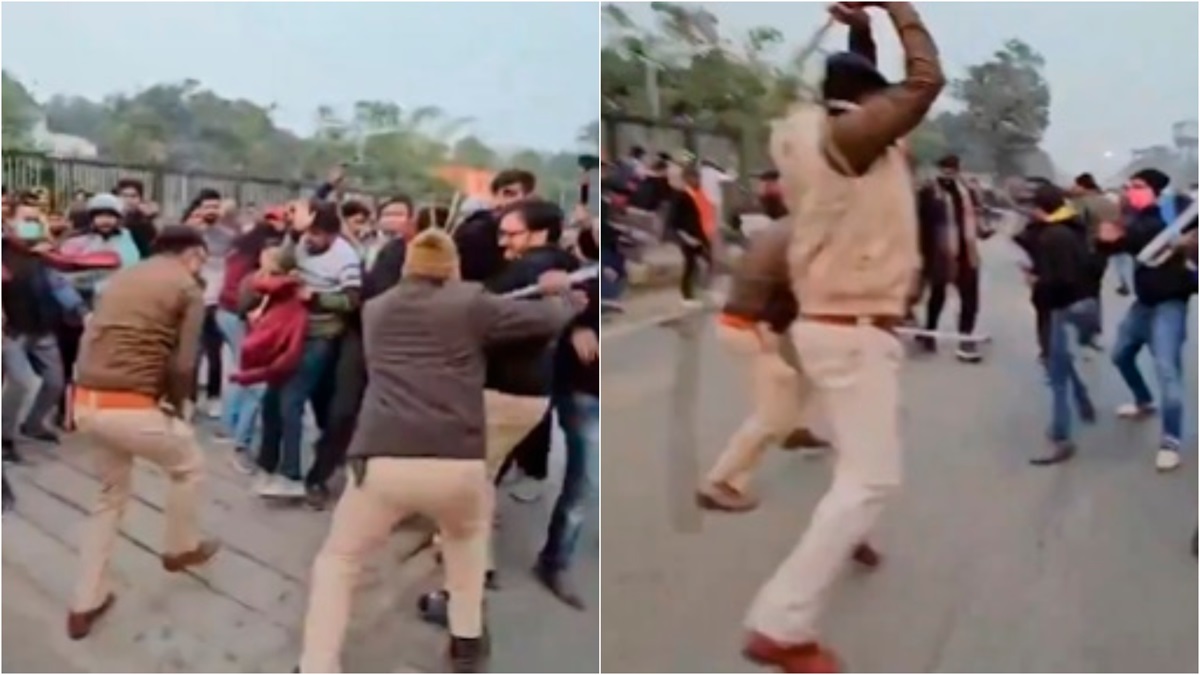 |
|
The recent Bihar Public Service Commission (BPSC) examination has been engulfed in controversy, sparking widespread protests and a forceful police response. Aspirants, alleging significant irregularities in the exam process, have taken to the streets demanding the cancellation of the 70th Integrated Combined Competitive Examination (CCE) 2024. Their grievances culminated in a large-scale protest at Gardanibagh, which escalated dramatically when protesters attempted to gherao the BPSC office. This led to a police lathi-charge, an event that has drawn considerable criticism and fueled further outrage amongst the affected candidates. The use of force against peaceful protesters raises serious questions about the authorities’ handling of the situation and the overall transparency of the examination process.
The heart of the controversy lies in allegations of question paper leaks and procedural irregularities during the examination. While the BPSC chairman, Parmar Ravi Manubhai, has vehemently denied the need for a complete cancellation of the exam, he has acknowledged some issues at a specific examination center, Bapu Pariksha Parisar. Following a disturbance at this center on December 13th, which tragically resulted in the death of an on-duty official, the BPSC announced the cancellation of the preliminary examination held at that location. This decision, however, falls far short of satisfying the protesting aspirants, who maintain that the problems were widespread and not limited to a single center. The BPSC’s decision to schedule a re-examination for the affected candidates on January 4th, 2025, is also viewed as an insufficient response by the protesters.
The scale of the protests underscores the significant stakes involved. Approximately five lakh candidates appeared for the 70th BPSC Combined (Preliminary) Competitive Examination, a crucial step for those aspiring to secure Group A and B government posts. The large number of participants and the high-pressure environment surrounding the examination amplify the severity of the alleged irregularities. The aspirants’ concerns go beyond mere procedural issues; they question the fairness and integrity of the entire process, arguing that the potential for widespread manipulation undermines the meritocratic principles upon which such examinations are supposed to be based. The ongoing protests represent not just a challenge to the BPSC, but also a broader critique of the systems and processes governing government recruitment in India.
Furthermore, the police response has added another layer of complexity to the situation. The lathi-charge against protesting aspirants raises concerns about the use of excessive force and the potential violation of fundamental rights. This act of violence not only exacerbates the existing tensions but also raises questions about the government's commitment to addressing the concerns of its citizens in a peaceful and democratic manner. The incident has drawn criticism from various quarters, with many condemning the police's handling of the protest and expressing solidarity with the aggrieved candidates. The aftermath of the lathi-charge has further inflamed the situation, with aspirants vowing to continue their struggle for justice and transparency.
The BPSC examination controversy highlights the critical need for greater transparency and accountability in the recruitment processes of government organizations. The incident serves as a stark reminder of the potential consequences when such processes are perceived as flawed or manipulated. The authorities must address the concerns of the protesting aspirants seriously and take concrete steps to ensure that future examinations are conducted fairly and transparently, while simultaneously investigating the allegations of irregularities thoroughly. The failure to do so risks not only undermining public trust in governmental institutions but also potentially triggering further social unrest. The ongoing protests and the police response underscore the urgency for systemic reform in ensuring fair and equitable access to public service opportunities.
